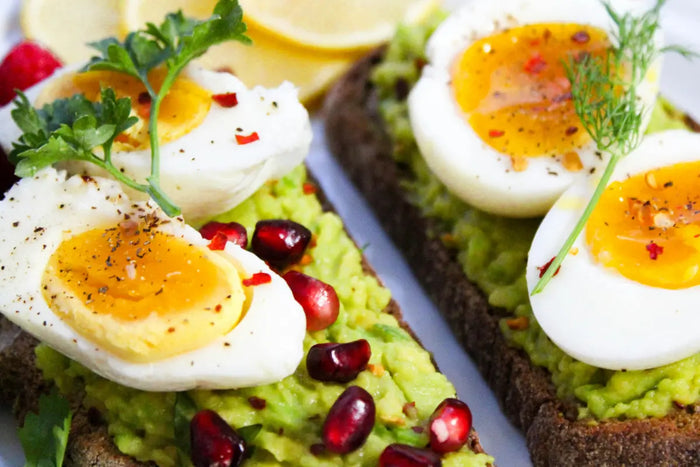Your hair is a barometer of how you’re doing in life. Tangled, unwashed, and in a messy bun? You’re either hungover or skipped a shower after your gym sesh this morning. Shiny, styled and smelling fresh? Someone’s having a good day!
There are so many things in life constantly demanding your attention that hair care can slip down the list. But you deserve a fabulously healthy head of hair that makes you smile when you look in the mirror and doesn’t clog your shower drain. We’ve put together a simple list of hair commandments that won’t eat into your self-care time, but will ensure happy hair and a happy you.
Check your hair type
First things first. It’s impossible to be sure of the best way to care for your hair unless you’re sure of what you’re dealing with. Luckily, there’s a simple way to do it.
Hair classification runs from 1a, which is completely straight, to 4c, which is tightly coiled. What pattern you are will determine how you should wash and condition your hair and the best products to style and care for it. Are you blessed with the s-shaped curls of a 2c? You’ll need a moisturising shampoo and a wide-toothed comb. Stick straight 1a? Consider skipping the conditioner if you want lots of volume.
Rethink how you wash
Whatever your curl pattern (or lack of one), washing your hair too much isn’t good for it. A daily shampoo can strip the natural oils away from your scalp which make your hair shiny and soft. If you’re prone to grease, consider investing in a good dry shampoo and stretching the number of days between washes, which will save you both time and energy.
If your hair is curly, you may be able to cut washing it down to once a week or even less. Consider wearing a protective hairstyle, many of which actually work better on hair that has some grip to it - buns, braids and topknots are all cute choices.
Condition correctly
For curly guys and gals, a deep conditioner is a must. And no two minutes jobs here - it’s important to give your hair time to absorb the precious moisture that conditioner gives your locks. Try applying a conditioner before you work out and wearing your hair up, then rinsing it out in the shower afterwards. Who doesn’t want a toned body and soft, silky mane?
If dryness isn’t something you struggle with, it’s important to only apply conditioner to the ends of your strands not the roots, as this can lead to grease and slipperiness which will ruin your ambition to have a flawless crown braid.
Choose your style carefully
Switching up your styles is a great way to care for your hair. Just as you wouldn’t wear the same clothes every day, a daily blast of heat and strong styling products isn’t the way to go. You can still bring out your hairdryer when you want to look your best, but consider air drying your hair to ensure that it stays healthy. As a bonus, using less heat will mean your colour will stay looking fresh and bright for longer.
Always use protection
Hair can be damaged by heated tools and UV light, so spray some on before plugging in your straighteners. When drying your hair with a hairdryer, never hold the nozzle too close to your ends as it can cause them to split and look fluffy. And if you’re spending lots of time in the sun, a hair sunscreen prevents scalp sunburn (never a good look) and prevents crispy, dried out strands.
Brush gently
Yes, we know you’re in a rush to shower because you’re hungry for your deliciously nourishing protein shake breakfast. But tugging and pulling on tangled hair just leads to breakage. To avoid having a matted mess for a mane, brush gently and slowly from the bottom up, and resist the urge to drag through any knots.
Avoid brushing when wet, as hair stretches more when it’s sopping and that could mean more strands snapping. A wide-toothed comb or brush such as the Tangle Teezer is a great investment if you wake up looking like you’ve been dragged through a hedge backwards.
Trim often
We know it’s annoying to have to sit still in a salon chair when you’d rather be smashing your personal best run time or perfecting your swan dive into the pool. However, regular trims are undeniably the best way to keep hair looking thick and healthy, as well as keeping your colour looking on point. While the myth that trimming regularly makes hair grow faster is a myth, it does create the illusion of more growth by eliminating straggling ends and uneven layers. Every six to eight weeks is a good guideline.
Luscious locks start from within
We know that you know this already, but the saying that you are what you eat really is true when it comes to hair. Nutritionally speaking, hair cells are the last tissue your body prioritises, hence why hair falling out is a common symptom of stress. Staying hydrated and eating foods high in proteins and amino acids will give your hair the best chance of staying healthy and happy.
Eggs, berries, nuts, fish, green leafy vegetables, sweet potatoes are all on the list, as well as any of Innermost’s protein blends. We'd recommend The Health Protein for its dark berries packed with antioxidants or The Fit Protein for its rehydrating minerals, which could make all the difference to your hair post-workout.
Be consistent
As with exercise, it’s what you do every day that counts, rather than what you do on special occasions. Maintenance is key - find a routine and products that work for you, then stick to it. You’ll be swishing your way to having a good hair day every day before you can say shampoo.


















